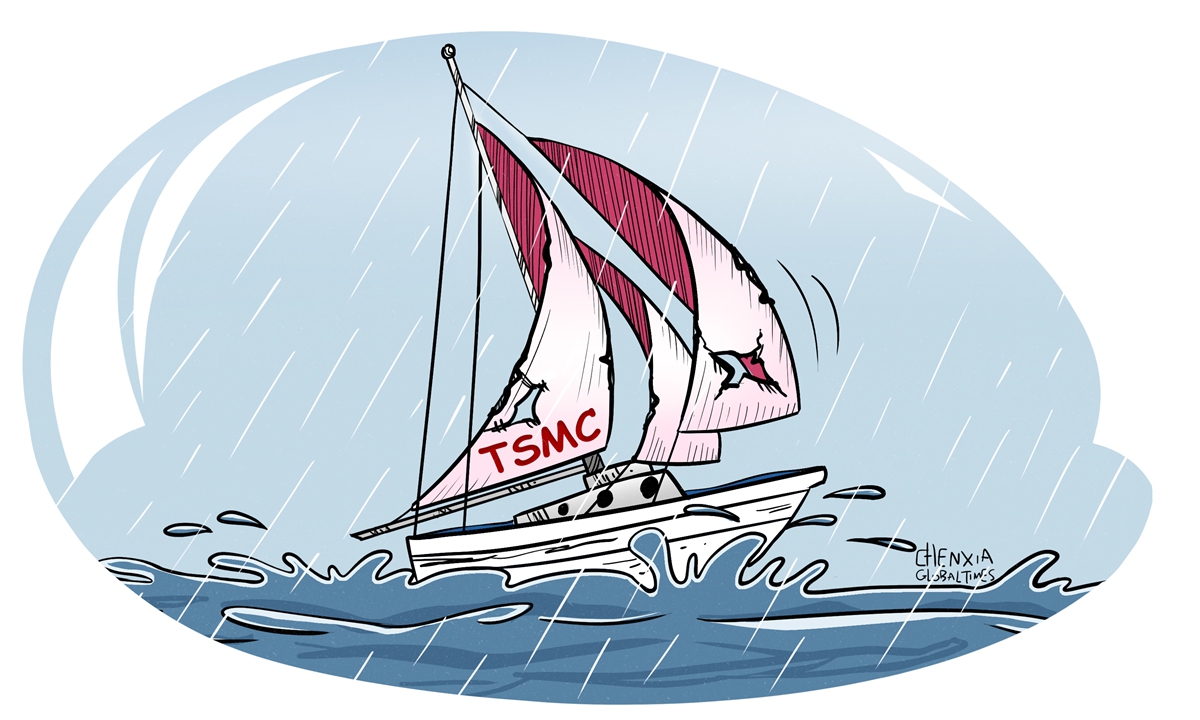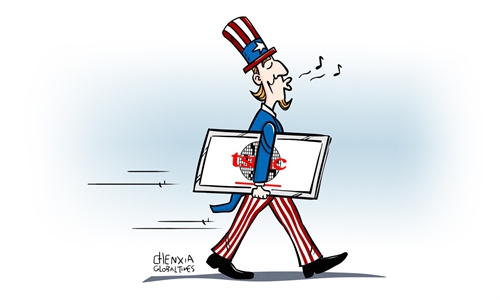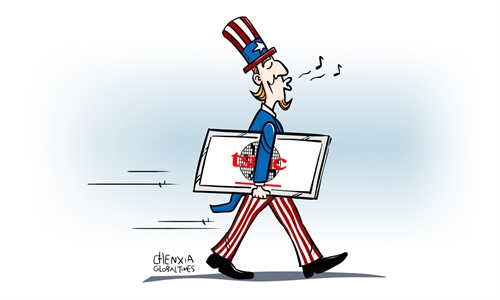
Illustration: Chen Xia/Global Times
In front of the reality that the sales of Taiwan Semiconductor Manufacturing Co (TSMC) have been under pressure, the economic policy adopted by the Democratic Progressive Party (DPP) authorities in Taiwan island to flatter the US has become increasingly warped.Now, a warning bell has been sounded. As Taiwan's economy slipped into recession, improving cross-Straits economic relations is key to the island's economic recovery.
TSMC is expected to see strong growth in orders from Apple in the second half of the year, but the rest orders from other companies will be unable to achieve the same growth as the same period in previous years, Taiwan news site money.udn.com reported on Monday, citing supply chain insiders.
As global demand stutters, a previous semiconductor shortage has turned into a surplus for some industries, and against this backdrop, some major brands have reduced the size of their orders with TSMC. What's worse, Taiwan's secessionist forces have attempted to turn the island's semiconductor sector into political leverage to gain US support for its separatist deeds, even though TSMC could face the dangerous consequences of being used as a cannon fodder in the US-initiated chip war.
Although Apple is TSMC's largest client, accounting for roughly 23 percent of its business, and its upcoming iPhone 15 series is widely anticipated to bring new orders to the Taiwan-based contract chipmaker, it's still hard to ignore the fact that Apple alone cannot support TSMC's revenue growth. In the first quarter of 2023, TSMC announced $16.72 billion in revenue, which decreased 4.8 percent year-over-year and decreased 16.1 percent from the previous quarter. The company said its first quarter business was impacted by "weakening macroeconomic conditions and softening end market demand, which led customers to adjust their demand accordingly."
The US is TSMC's largest market. It's understandable that TSMC is upping its investment in the US, announcing in December 2022 that it's building a second semiconductor factory in Arizona and raising its investment there from $12 billion to $40 billion. However, it's no secret some political considerations are involved in TSMC's surface level enthusiasm toward made-in-US chips, so such acts have a more symbolic than practical meaning and will have little, if any, impact on growing revenue.
The Chinese mainland is the world's largest semiconductor sales market, which reminds TSMC of the importance of increasing its share in the mainland market. However, as TSMC increases its investment in the US, some observers believe the company has tried to become less reliant on the mainland market in recent years. But, facts have proven TSMC's strategy futile.
Taiwan is best known for making cutting-edge semiconductors, so TSMC, to some extent, offers a window to observe the island's economy. According to a Foreign Policy magazine article, TSMC is such a colossus that it together with the rest of the semiconductor industry constitutes about 15 percent of Taiwan's GDP.
Taiwan's export-dependent economy slipped into recession in the first quarter as exports were hit by slowing global tech demand. Overall, the annual GDP contracted 2.87 percent in the January-March period. The statistical data from mainland customs showed Taiwan exported $74.8 billion in goods to mainland in the first five months this year, dipped 26.2 percent from a year earlier.
Over the past decades, increased trade and exchanges between Taiwan and the Chinese mainland have brought tangible benefits to people on both sides of the Taiwan Straits, especially those from Taiwan. The island has gotten strong support from the mainland in terms of economic development. Now, the mainland is Taiwan's largest export market and the largest destination for Taiwan's off-island investment. The volume of cross-Straits trade rose to $328.34 billion in 2021, up by a factor of more than 7,000 as against 1978.
Amid recession, the DPP authorities should improve cross-Straits economic relations to boost the hope of economic recovery. However, regrettably, they are traveling in the opposite direction. The DPP authorities are trying to pursue "independence" and resist national reunification, while the anti-China forces in the US are scheming to use Taiwan as a pawn against China. Their behaviors have cast a shadow over the cross-Straits trade and Taiwan's economy.
Taiwan is an inalienable part of China's territory. Nothing will stop the inevitable historical trend that Taiwan will return to the motherland. The island's semiconductor sector should not become a cannon fodder.
The author is a reporter with the Global Times. bizopinion@globaltimes.com.cn



